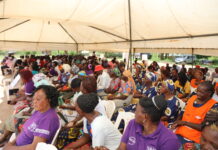By Mary Mwendwa
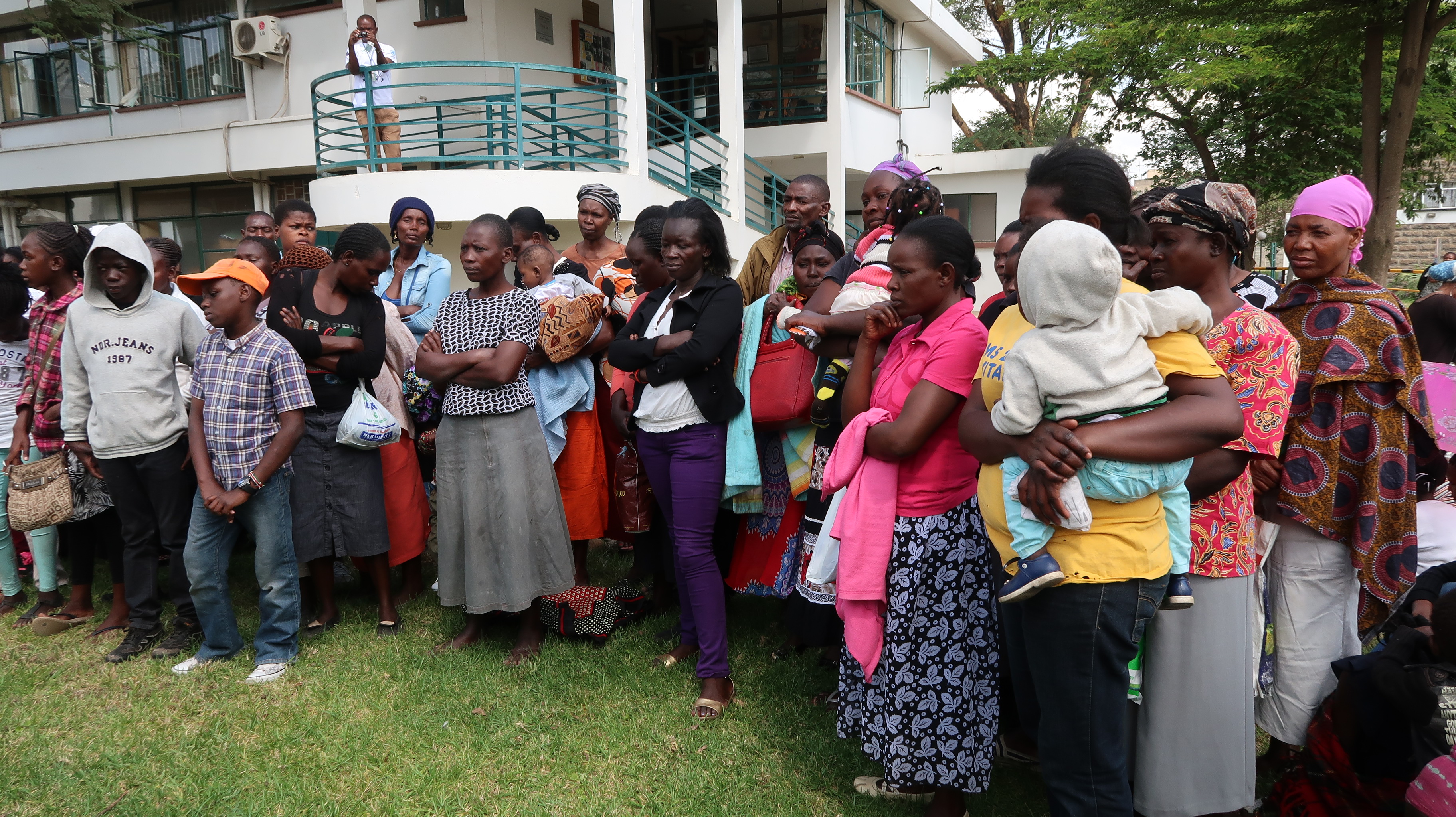
Residents of Mukuru Informal settlement in Nairobi recently benefited from a food safety campaign that was aimed at sensitizing families on the importance of safe food during the festive season.
Lactating mothers, pregnant mothers , men , Community Health Workers and people living with HIV/AIDS were beneficiaries of the important function .
Joseph Mulei, a father of six and a resident of Marigoini and also a Community Health Worker was among those who attended the forum , listening keenly and asking questions he pointed out some of the issues that his community are struggling with.
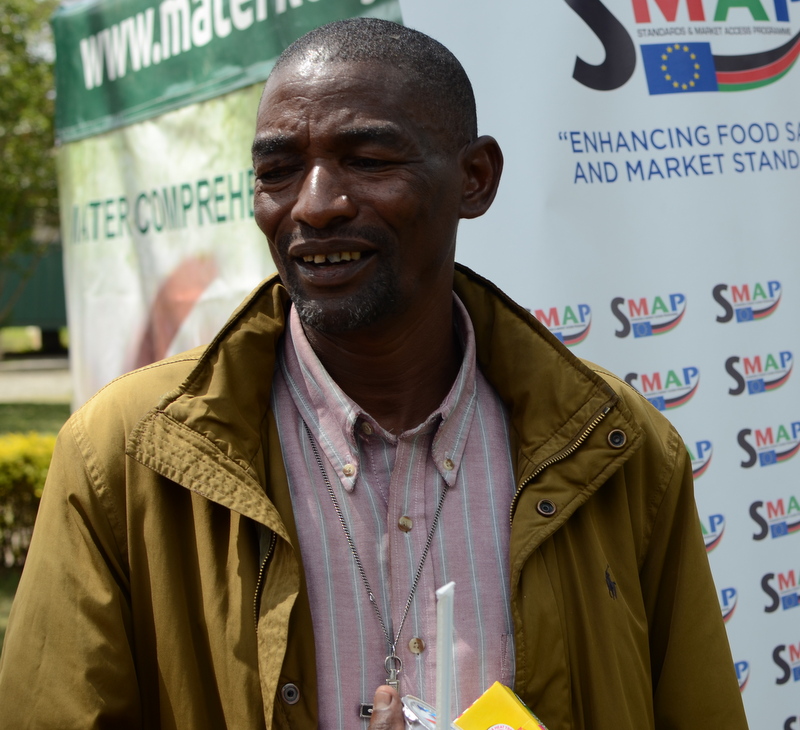
“In Marigoini, at times we do not get clean water because the pipe system is made of plastic pipes which at times break and become a source of contamination to water. I try my best with other volunteers to educate the community on treating water and also inform the owners of the water systems to repair them.We also do not have a proper waste management plan.People throw garbage all over and children playing are at risk of getting infection from this kind of waste.”
Joseph confirms how in the past they had to deal with flying toilets which of now no longer exist.
“We have trained people on hand washing after visiting toilet, before handling food and for mothers with small babies after changing baby to also wash their hands.I also do home visits to check how people are staying and advise them accordingly.You know in the slum there are many challenges but we soldier on.”He says.
Joseph points out how community groups have come up to help in cleaning the environment when its dirty.
Sr.Brigid Marnane Comprehensive Care Clinic Project Manager at Mater Hospital agrees to the fact that food security is a challenge among her clients who come for care at their clinic.”We attend to over 3000 clients living with HIV/AIDS where 90 percent come from Mukuru slums . Many of these people are unemployed and many on casual labour while a big percentage are single parents.We educate our clients on the importance of eating a balanced diet and also food that is safe.”
A report done by World Health Organization (WHO) in 2015 indicated Globally in 2014, an estimated 159 million children under five years of age were stunted, and 50 million were wasted. Furthermore, according to 2015 updates, 2.4 billion individuals lack access to improved sanitation and 663 million lack access to a protected water source. Often the same communities affected by under nutrition also have limited access to safe water and sanitation, reinforcing the causes of under nutrition and emphazising the need for multi-faceted solutions.
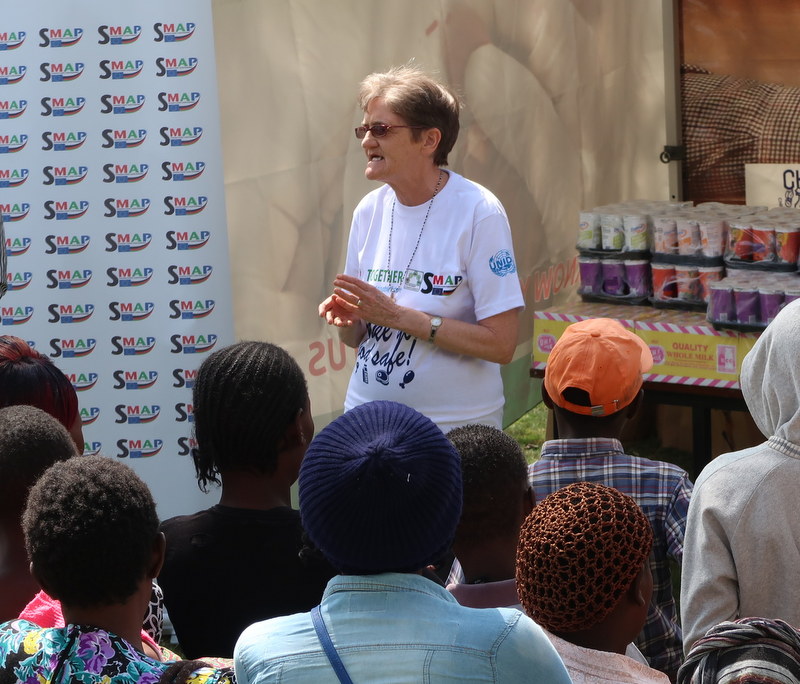
Speaking during the event, Pauline Mwanjaro, a Nutritionist at The Mater Hospital advised the residents of Mukuru and other neighbouring areas who had attended the forum on the importance of eating the right food with all nutrients and observing cleanliness at the same time.
“First of all when you go to buy food , confirm on the expiry date , look for freshness especially on the vegetables and fruits and also the colour. If food has lost its original colour it means something is not right , do not go for it.Be keen on meat , do not buy meat that has been refrigerated for long.
Expectant mothers and lactating mothers have to eat food that is rich in vital nutrients, their bodies have a demand of these nutrients because of their body status.”
On mixing food while cooking Pauline warned ,”Do not mix food like meat and vegetables to cook together.They all have different cooking temperatures . Some foods when mixed while cooking block some nutrients to be absorbed in the body system.”
Christine Misiko, National Program coordinator ,The Standard and Market Access Programme (SMAP) says that SMAP aims at promoting competitiveness and market access of Kenya’s animal and plant-based products. Noting the ongoing online campaign #makeyourfoodsafe consumers of food during the festive season.
“This program has been funded by European Union (12 million Euros ) where UNIDO is the implementing partner.The Make Your Food Safe Campaign is aimed at raising awareness among consumers on ensuring food safety practices,encouraging women to reduce their family’s risk of food poisoning by regularly practicing safe food handling behaviors in their homes and Sensitizing the public on poor market.
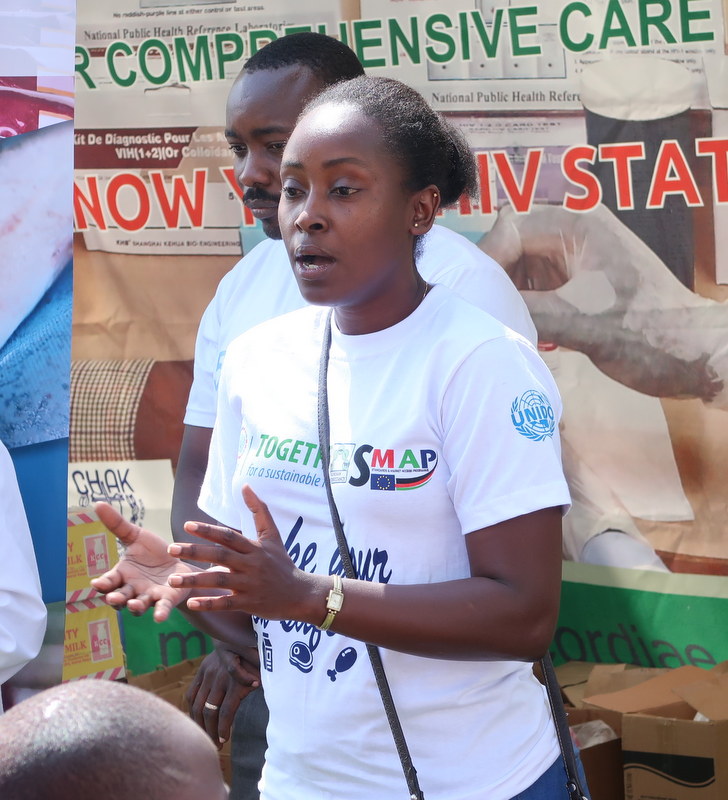
Christine further confirms ,”Areas of focus in this particular campaign are , how consumers can protect themselves and their families from food poisoning and other dangers associated with lack of food safety practices, educating them on keys to safer food handling, reading instructions and labels when buying and preparing food, knowing the ingredients involved in food preparation, proper food handling of especially meat, chicken, dairy produce, preparing and storing food to avoid contamination and poisoning and to empower them to seek redress and share information on unfair trade practices encountered in the market.



